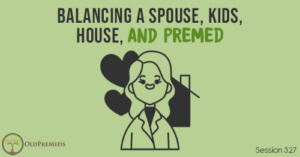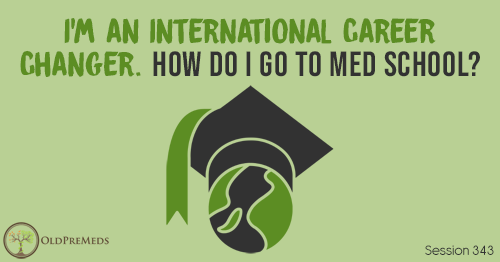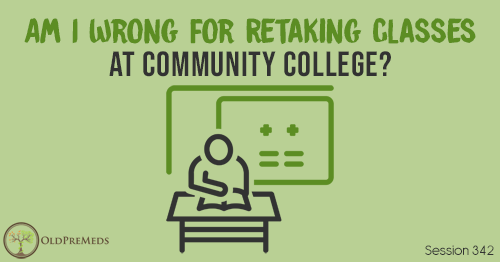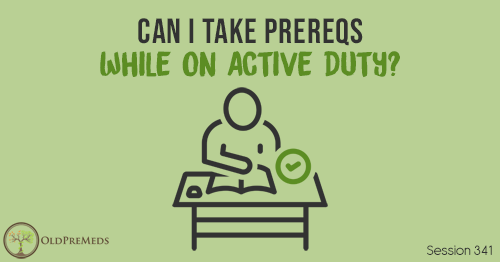Apple Podcasts | Google Podcasts

Session 327
This premed is a lesbian looking for schools and communities that will accept her identity. How can she find places that feel safe to her?
We have a great new way for you to submit questions. Just call 833-693-4279 and leave your question in the voicemail. Also, please be sure to check out all our other podcasts on Meded Media as we try to bring you as many resources as you need on this journey.
Listen to this podcast episode with the player above, or keep reading for the highlights and takeaway points.
[00:50] The MCAT Minute
The MCAT Minute is brought to you by Blueprint MCAT.
Did you know that there are plenty of free resources out there to help you on your path to medical school and do well on the MCAT? And Blueprint MCAT is one of those amazing free resources.
Sign up for a free account over at Blueprint MCAT today and get access to a half-length diagnostic, a free full-length exam, an amazing study planner tool, and their spaced repetition flashcard platform, among other things!
[01:28] OldPreMeds Question of the Week
“They say I’m a lesbian who is planning to apply predominantly to DO schools next year, along with 10 to 20 MD schools.
While being LGBTQ plus isn’t exclusive to my identity, I don’t want to spend four years in a location where I have to fear discrimination and hatred for who I am.
However, I know a lot of DO schools are in smaller towns as opposed to large cities. I currently live in my home state of California. I’ve spent most of my life other than four years of undergrad in Oregon and three years in undergrad in DC or after undergrad in DC. For this reason. I’m not familiar with the lower Midwest southern locations of some DO schools. A lot of those schools are in “red” states, which is why I’m wondering if I should apply to schools in that part of the country.
As you can imagine, if I’m not applying to the religiously affiliated schools, I’m also not applying to any schools in Texas. They have separate applications and at least 90% of applicants are Texas residents.
Other than religious schools and those in Texas, what other DO schools should I not apply to because the location is unfriendly towards LGBTQ+ people? What DO school should I strongly consider because they are in LGBTQ+ friendly locations?”
[03:05] The Importance of Considering Location and Acceptance for the Queer Community
When it comes to diversity and acceptance of different sexual orientations, there tends to be a contrast between big cities and more rural areas.
Larger cities often offer a greater sense of diversity and acceptance, making them more welcoming for individuals in the queer community. Locations like Texas or Florida may not necessarily be ideal for someone seeking acceptance in the queer community.
As an ally who hasn’t experienced these challenges firsthand, I cannot provide an exhaustive list of considerations. However, one factor to think about is the difference between red states (politically conservative areas) and more rural places compared to urban areas. These differences can serve as potential indicators of how accepting a particular area might be toward your identity.
While the campus community might be accepting, it’s important to consider whether venturing just a few blocks away from school could potentially pose risks to your safety or well-being. For instance, displaying a pride flag on your car in a rural area might attract unwanted attention or potential harm. These are important factors to keep in mind when contemplating your surroundings and assessing the level of acceptance in a given location.
“You have to separate the school from the environment.”Click To TweetThere’s a common perception that people in the southern region are generally less accepting when it comes to racial and sexual diversity. Additionally, rural areas tend to have more DO schools as these institutions are often not affiliated with large academic medical centers found in urban areas. It’s important, however, to differentiate between the school itself and the surrounding environment.
[06:27] Finding LGBTQ+ Friendly Schools
When searching for LGBTQ+-friendly schools, there are several ways to gather information. One effective method is to visit the Student Doctor Network (SDN), where students congregate and engage in discussions about specific schools. SDN provides school-specific threads where prospective students can inquire about LGBTQ+ support and experiences within the community. It’s important to ask questions such as what to consider when choosing a school and whether there are existing LGBTQ+ individuals who can share their experiences at the school.
Another approach is to physically visit the campus and inquire about the presence of LGBTQ+ clubs or organizations specifically within the medical school. The existence of such clubs can serve as an indicator of an inclusive and supportive community for LGBTQ+ students.











